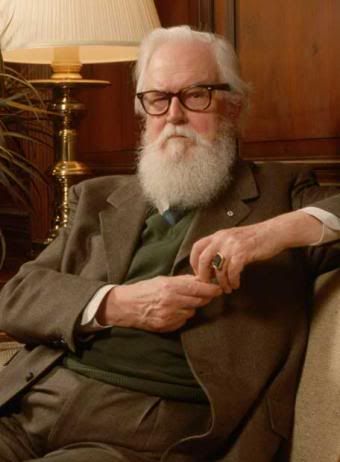Dr. X on Jung, Canada, and The Confederacy
Dr. X posts this from Memphis, where he is researching his next book, Sun and Signification - A Semiotic History of Rockabilly:
Front, enough of your endless provocations! I can contain myself no longer. Your attempt at Canadian/Confederate musical juxtaposition mistakes Pittsburgh Barry for San Francisco Barry.

The Baghdad-by-the-Bay Bambino is, in this instance, a dramatic monologue worthy of Robert Browning: The Night They Drove Old Dixie Down by The Band.
Written by Canadian Robbie Robertson in collaboration with Arkansian Levon Helm, The Night They Drove Old Dixie Down is a remarkably direct account of the suffering brought on by the Union's decision to escalate to total war in the last 12 months of the conflict. Unable to win in a straight-up fight, Lincoln and Grant determined to attack simultaneously on multiple fronts (so that scarce resources could not be shifted in defense of any one area), to target the fertile farmland of the Shenandoah Valley, and, as a special bonus, to terrorize the civilian population. This was not collateral damage - Grant instructed Sheridan:
The people should be informed that so long as an army can subsist among them recurrences of these raids must be expected, and we are determined to stop them at all hazards. ... Give the enemy no rest ... Do all the damage to railroads and crops you can. Carry off stock of all descriptions, and negroes, so as to prevent further planting. If the war is to last another year, we want the Shenandoah Valley to remain a barren waste.The mission was pillage, although rape was included at no extra charge.
Robertson took the trouble to research the facts. Lee's army was starving, and Stoneman's cavalry did tear up the tracks, although many artists mis-sing "so much cavalry" or "Stonewall's cavalry." (This last is a bit ironic, as Confederate General Stonewall Jackson was Stoneman's roommate at West Point.)
Although often played and endlessly covered, there is only one performance that really matters:
The song is potent. As a musical clinician I am rarely affected by the object under study, but must admit that when I first heard it even I suffered a twinge of rebel sympathy. For those lacking my studied analytical detachment, the effects can be profound: I once played it for the floor manager of a Chicago munitions factory and he walked around for days muttering things like, "damn Yankees won't let a simple man live in peace."
I can only attribute this to a fortuitous connection with a massive collective Jungian neurosis, an hypothesis supported by Robertson's account of its writing:
It took me about eight months in all to write that song. I only had the music for it, and I didn't know what it was about at all. I'd sit down at the piano and play these chords over and over again. And then one day the rest of it came to me.
Canada Knows from the Jungian Subconscious

Further evidence of a Jungian meet-up - the tune has been covered by, among others, The Black Crowes, Johnny Cash, Joan Baez and the Muppets, Lawrence Welk, John Denver, Olivia Newton-John...you get the idea. And what but the Collective Unconscious can explain that none of these versions is actually bad? Compare and contrast with The Beatles, who despite considerable good fortune in the entertainment business, were unable to write a song that anyone else could make sound good (example here - possible exception here).
By the same token, it is so hard to improve on the original that hardly anyone bothers to try a different approach. The Richie Havens version deserves special praise for its austerity and courage:
Perhaps one reason Confederate nostalgia has come back like a bad case of amoebic dysentary is that the massive catharsis of The Night They Drove Old Dixie Down originally played out on national television, a medium that is now in severe decline. Perhaps if the song could be placed on a "website" or "blog" it could be heard by the younger generation, and help them to effectuate a renewed sense of friendship and civility between North and South.
And then, perhaps, at long last, the Civil War will be over.


2 Comments:
About the bearded guy:
As we get older, Eric, Jamie and I are going to converge and become that one dude.
Oh, and don't forget Fairbanks Barry.
Post a Comment
<< Home